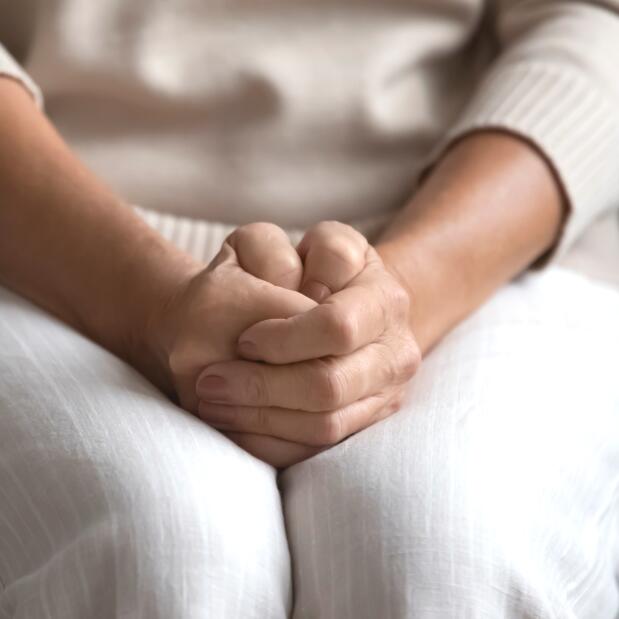Genital psoriasis
Genital psoriasis
Psoriasis can affect all parts of our body. And our intimate areas are no exception to the rule, since it can involve the genital area (and more rarely the fold between the buttocks). Are you concerned? Don't hesitate to talk to your dermatologist or gynaecologist. He or she will be able to reassure you and provide you with advice and appropriate treatments.

Genital psoriasis: symptoms
Because it affects an intimate part of our body, genital psoriasis is not easy to talk about. However, it’s not uncommon. It occurs in half of all men with skin psoriasis and in one third of women. This type of psoriasis appears as red patches with defined edges. However, due to the localised moisture of the skin, the scales usually found on the rest of the body's skin are absent. On the other hand, the itching is very difficult to manage. It’s therefore better to prevent this itching.
Where does genital psoriasis occur?
Because of its location, genital psoriasis raises certain questions
In women...
The red patches most often affect the hairy areas. This means the pubic area and the labia majora. Women can also be frequently affected by what is known as "inverse" psoriasis, also known as fold psoriasis. This psoriasis affects the folds of the groin, the upper thighs or the groove between the buttocks (ano-genital psoriasis).
...and in men
Genital psoriasis occurs on the glans, the skin of the penis or the scrotum, the skin surrounding the testicles. As in women, the intergluteal cleft (ano-genital psoriasis) is also frequently affected.
Genital psoriasis: don't be afraid to talk about it
It’s always good to remember that genital psoriasis is not contagious. But because of the sensitive area it affects, it’s is often quite a taboo subject. It can affect one’s quality of life and become more pronounced during intimate relations. With a fear of showing oneself to the other... the psychological impact is real. Don't hesitate to talk about it with your partner. And don’t be afraid to broach the subject with your doctor, your gynaecologist or your dermatologist. He or she can reassure you and direct you towards the appropriate treatment.

FRIENDLY (AND EXPERT) ADVICE
In everyday life, it’s important to adopt the right habits
Scratching, unsuitable toiletries or wearing tight clothing can lead to the Koebner phenomenon. In short: an aggravation or maintenance of psoriasis through friction or irritation.
Let's start with washing. Avoid detergent products. Ultra-rich cleansing bars, cleansing gels for intimate hygiene or a cleansing oil will limit the drying of the skin and mucous membranes. In order to limit localised moisture, dry yourself carefully, by patting and not rubbing. And why not use a hair dryer at medium temperature?
Another piece of advice: for your underwear, don't choose styles that fit too tightly and avoid synthetics, which have the annoying tendency to retain perspiration. Opt for cotton.

Best practices to treat genital psoriasis
Because of the thinness and sensitivity of the skin in the genital area, treatments will have to be adapted. In the first instance, your dermatologist may prescribe localised dermocorticoid and/or vitamin D derivative treatments. But beware, these can be irritating to the mucous membranes. In this case, a drying repair spray and a protective repair cream with copper and zinc (Cicalfate+) can soothe your skin.
Afterwards, localised moisturising will reduce the itching or burning sensation. To do this, use an emollient care product. On the other hand, avoid overly greasy forms such as ointments, which tend to accentuate maceration.
Our solutions for psoriasis of the intimate areas
Eau Thermale Avène products designed to soothe genital psoriasis
- Thermal Spring Water Spray
Thermal Spring Water
Thermal Spring Water SpraySoothes - Restores the skin barrier - Calms
Which skin care routine should you adopt?
Identify what it really needs with the help of our experts and discover the most suitable skin care routine for you.

